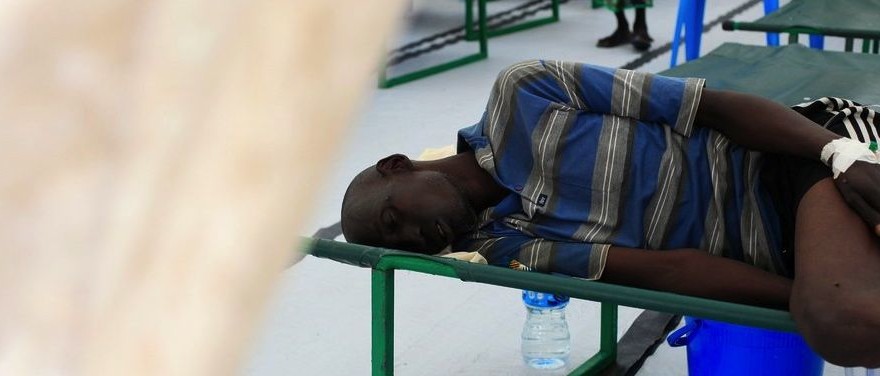The cumulative number of cholera cases in South Sudan since the start of the outbreak has risen to 1106. Medical reports suggest that the outbreak is being contained in some areas, while in others new cases have been found.
According to UN Humanitarian Coordinator Toby Lanzer, the number of cases as of this morning was 1106. He said cases have now been confirmed also at Kajo Keji and Yei in Central Equatoria, and at Kaka in Upper Nile State.
A situation report by the Ministry of Health and World Health Organization on Saturday found that the cumulative number of cases as of the end of the day on 31 May was already 1,078, with 27 fatalities, while another 896 patients were discharged after successful treatment.
This means that about 28 new cases were recorded between midnight Saturday and early Monday, in other words in a period of just about one day.
Last week the number of cases in Northern Bari Payam, hitherto one of the most affected neighborhoods, declined compared to the previous week. But the number of cases remained high in Munuki and also rose significantly in Rejaf payam.
Gumbo area in Rejaf payam, which is on the east bank of the Nile just opposite from Juba, saw 164 suspected or confirmed cholera cases between 23 April and 31 May.
Epidemiological data provided by WHO and the Health Ministry indicates two peaks of transmission, the first on 19 May and the second on 26 May.
The second transmission peak was higher than the former. But the number of reported cases was less on Friday and Saturday than earlier in the week.
At the largest treatment centre, the one at the Juba Teaching Hospital, the director-general said on Friday cholera was decreasing. He told the local Catholic radio that the number of patients brought in the hospital was not high compared to the first days of the outbreak.
Nonetheless, WHO reported, “There is a risk of the outbreak spreading to other surrounding counties and villages if community interventions are not rigorously conducted.”
“Plans and budgets for community level interventions have been developed, however their implementation is challenging due to financial constraints.”
Health officials say that those who contract cholera typically have been drinking from unsafe water sources, eating foods sold on the roadside or at makeshift markets, or practicing poor hygiene.
It can also be contracted by handling the body of someone who died of the disease.
Photo: (MSF/Andreea Campeanu)




